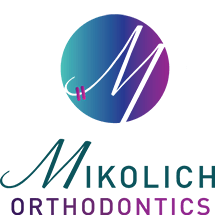
Whether it’s due to crowding, gaps, jaw misalignment or other issues, most kids need orthodontic treatment at some point. And since each patient is unique, no two treatment plans are exactly alike. In fact, the American Association of Orthodontics recommends that every child has a consultation by age 7 because, in some cases, they can benefit from early intervention treatment called Phase I orthodontics. So how does it work and when would an orthodontist in Canfield recommend it? Keep reading to find out!
What Is Phase I Orthodontic Treatment?
Phase I treatment addresses the development of the teeth, jaws, and overall facial structure as early as age 7 to prevent more serious issues later. At this stage, kids have a mixture of baby teeth and permanent teeth, so a full set of braces usually isn’t recommended.
However, this is also when jaw alignment issues become apparent including overbites, underbites, open bites, etc. By treating these issues early, traditional braces in Canfield (Phase II treatment) will be easier and faster later on. In fact, in some cases it can even eliminate the need for braces altogether.
What Are the Benefits of Phase I Orthodontics?
The first step of Phase I Orthodontics is taking detailed records, images, and models of your child’s teeth and jaws. With this information, an orthodontist can determine which interventions would be beneficial. For example, they may help a child stop sucking their thumb to allow the permanent teeth to come in properly. Or they may recommend wearing a retainer, or brackets and wires on only a few teeth. These treatments can provide multiple benefits, including:
- Guiding the permanent teeth to erupt in ideal positions.
- Ensuring that the upper and lower jaws are in alignment, potentially preventing the need to extract permanent teeth later.
- Improving your child’s overall facial development and aesthetics.
- Preventing the need for braces down the road or reducing the time spent in braces.
Is Phase I Orthodontic Treatment Right For Your Child?
Here are some signs to look for that may indicate your child could benefit from Phase I orthodontic treatment:
- Trouble chewing, speaking or biting down properly
- Thumb-sucking past age 7
- Teeth that protrude
- Large spaces between the teeth
- Overcrowding
- Chronically biting down on the lips or cheeks
If you notice any of these issues, schedule a consultation with an orthodontist. They’ll recommend the best treatment for your child, at the right time, to help them get the most from their treatment.
About the Author
Dr. Marissa Mikolich is an orthodontist in Canfield who is dedicated to providing outstanding care. To create the best treatment plan for each patient’s unique needs, she recommends a consultation around age 7 to see if Phase I treatment would be beneficial. If you’d like to know more about Phase I orthodontics or have any questions, she can be contacted via her website.

